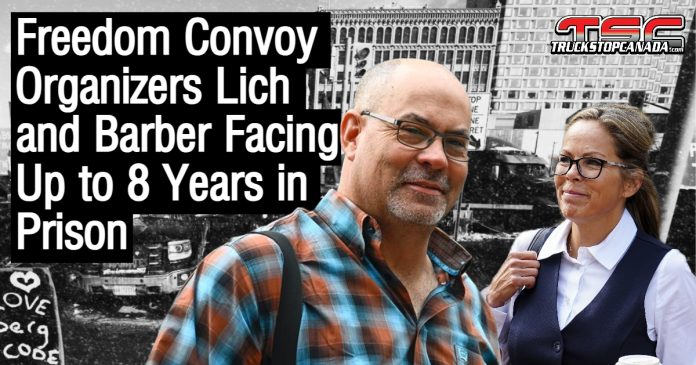Tamara Lich and Chris Barber, two prominent organizers of the 2022 Freedom Convoy that brought downtown Ottawa to a standstill, could face up to seven and eight years in prison respectively, after being found guilty of mischief.
And the controversy surrounding their proposed prison sentences continues to escalate.
The Crown argues that their roles in orchestrating the weeks-long protest merit significant punishment. But several Conservative MPs, including Pierre Poilievre, Melissa Lantsman and Jeremy Patzer, are calling the proposed sentences disproportionate. They argue that Lich and Barber are being treated with unusual severity, especially compared to cases involving violence or assault, which sometimes result in lighter sentences.
For these critics, the case has taken on the appearance of politically motivated prosecution. They suggest that the justice system is applying harsher treatment to individuals whose actions oppose the current Liberal government, raising concerns about selective enforcement and judicial overreach.
The controversy has reignited broader debates about freedom of expression, the legitimacy of protest movements, and the role of the courts in politically charged matters. While Conservative leaders openly support the defendants, many legal experts caution that such public interference in ongoing judicial processes risks undermining public trust in the system.
Legal scholars also emphasize the seriousness of the disruptions caused by the convoy, pointing to the economic and social consequences for Ottawa residents and Canadian institutions. The Crown maintains that the mischief in question goes far beyond civil disobedience and constitutes a serious threat to public order.
Justice Heather Perkins-McVey, who presided over the case, noted that Lich and Barber continued encouraging protesters to hold the line despite clear evidence of the impact on the city. That persistence, in the Crown’s view, elevates their actions to a level deserving of a significant custodial sentence.
As the final sentence is expected soon, the case has grown into more than a legal matter—it has become a political flashpoint. For some, Lich and Barber represent a symbol of political resistance. For others, the trial embodies the importance of defending the rule of law against prolonged civil disobedience.
The outcome of this case will carry weight not only in the courtroom, but in Canada’s political landscape for years to come.















